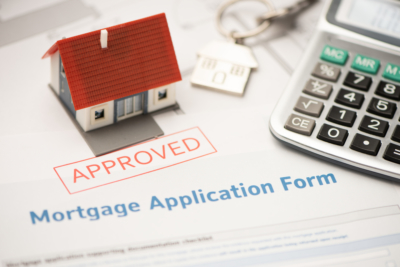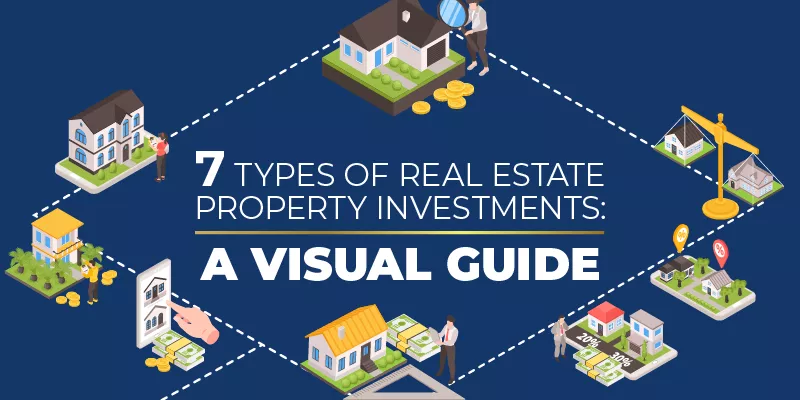At some point in your adult life, you’ll decide to get serious. You’re not getting any younger, so you want to start getting things, such as your finances, in order. You know you can’t possibly work forever, and by the time you retire, you want to enjoy a life of stability. And one of the foundations of a stable, secure life is a roof above your head. Yes, at some point, you’ll have to explore house hunting in earnest.
Unfortunately, even if you have a full-time job with side gigs to boot, you might still need help with financing the house of your dreams. The upfront cost of purchasing a house is not something everyone can afford straight-up from their savings. This is where a housing loan comes in, enabling you to afford your dream property.
If you’re ready to sign above the dotted line and own a home, here’s what you need to know about housing loans in the Philippines.
What is a housing loan?
Contrary to popular belief, a housing loan is not solely used for the purchase of a new home. On top of that, you can also use the funds for the following purposes:
- Residential property renovation
- Refinancing of an existing housing loan
However, for the sake of this article, let’s put a spotlight on first-time home loan applicants. If you fall under that category, you may apply for a housing loan for either of these purposes:
- Purchase of a fully developed residential house and lot, condo, or townhouse.
- Funding the construction of a residential property on a lot you own.
A housing loan puts you in a legal agreement with the lender. This agreement outlines the loan amount and loan tenure. The latter is the duration in which you have to complete the loan payment.
Your monthly amortization goes to both the principal loan amount and interest, with the latter calculated based on how much monthly payment you make. That means every time you pay extra on your monthly amortization, you reduce the overall interest of the loan agreement.
It’s worth noting that the initial years of loan payment go to interest. After some years, your monthly amortization starts chipping off the principal.
For you to be guided properly in your home loan application and house hunting, you may want to work with a real estate broker in the Philippines. They give expert advice on how best to go about the process.
Housing Loan Options
As a borrower, it pays to know the choices at your disposal when applying for a housing loan. In terms of lenders, you have the following options:
1. Bank Financing
Most banks in the country offer housing loans as part of their products and services. Loan terms and loan amounts differ from one bank to another. If you decide to go this route, make sure to shop around for the best agreement you can find. However, it’s worth noting that applying for a home loan from banks can get rather competitive. Their eligibility requirements tend to be meticulous, too.
2. Pag-IBIG
Pag-IBIG is a government agency whose main thrust is to provide its members with home loan agreements based on more lenient terms as compared with banks. If you have a Pag-IBIG account, you can apply for a loan regardless if you are self-employed, salaried, or an OFW. In terms of age, the agency welcomes applicants up to 65 years of age. The loan amount provided can be as high as PHP 6 million.
3. In-house Financing
Here, you apply for a housing loan with the real estate developer from whom you’re purchasing a property. The downside of this option is the limited loan tenure, which typically does not exceed five (5) years.
Once you’ve decided which type of financing option to apply for, it’s time to choose between the two types of term payments for housing loans. They are as follows:
- Conventional – This is most recommended to homebuyers who prefer to plan their finances ahead of time. Here, you agree on a fixed loan tenure that comes with an exact monthly amortization.
- Flexible – This is the type of housing loan banks prefer to offer clients. With a flexible loan, you can decide how much you want to deposit or pay at any given month. If you pay more, the interest on the principal gets reduced.
Are you eligible for a housing loan?
Lenders provide a housing loan only to those they deem capable of repayment. To be eligible, you must meet the following criteria:
- Must be a Filipino citizen
- Foreigners with Philippine working visa, quota/non-quota immigrant visa, or sec 13A visa
- At least 21 years old but not older than 65 years of age upon loan maturity
- Must have a stable source of income either from business or employment
- Must earn at least PHP 40,000 a month
- For employed applicants, at least two years of work tenure
- For self-employed applicants, at least two years of profitable business operation
On top of the aforementioned eligibility requirements, lenders also look into other factors to determine whether an applicant deserves loan approval. They are as follows:
- Household income – If you are married, your spouse’s income will be assessed by the lender too. That is to determine whether your household gets a sufficient stream of income to take care of loan repayment.
- Dependents – Loan providers will consider how many people are financially dependent on you. If you have several dependents, your income should still be enough to cover the additional financial obligation of loan repayments on top of those you already have.
- Stability – Employed individuals need to prove that their financial situation is stable. You might need to procure supporting documents from your employers, such as an employment certificate and copies of your payslip. As for business owners, you will need to furnish lenders with relevant documents such as tax returns, business permits, and financial ledgers, among others.
- Credit history – Your credit score will play a crucial role in your application. Lenders have different standards in terms of credit rating, so consult with your real estate broker to know which loan provider can give you a more favorable result. Rule of thumb: Refrain from incurring new debts or making major purchases before a housing loan application.
Documents Needed to Secure a Home Loan
Before deciding on a home loan application, you should collate all of your relevant documents. Here’s a checklist for your reference:
General
- Housing application form
- At least two valid government-issued IDs (Ex. passport, SSS, driver’s license, PRC ID)
Additional documents for employed applicants
- Latest income tax return (ITR)
- Original copy of the certificate of employment (COE)
- Payslips (from the previous three months)
Additional documents for self-employed applicants
- Photocopy of DTI or SEC registration
- Audited financial statements (from the last two years)
- Latest 6-month bank statements alongside verification authorization
- List of trade references (at least three clients or customers and three business suppliers, complete with contact details)
Additional documents for married applicants
- Documents relating to your spouse’s income
- Marriage certificate
Additional documents for OFWs
- Special power of attorney (SPA)
- Certificate of employment (COE) duly approved by the Philippine Overseas Employment Administration (POEA)
- Proof of relationship and birth certificate (for those with co-borrowers)
- Certificate of marriage or certificate of no marriage (CENOMAR)
Additional documents for foreigners
- Photocopy of Alien Certificate of Registration (ACR) indicating visa status (either Alien Employment Permit or Permanent Immigrant)
- Visa ID
Overview of the Loan Application Process
Expect to go through the following steps when you decide to invest in a real estate property via a housing loan.
1. Accomplish relevant documents
Regardless of your applicant status, you need to gather essential documents that will help lenders assess your loan application. This is also the part where you fill out the home application form, where all terms of the agreement are outlined. Make sure to review the document thoroughly.
2. Shop for a loan provider
Do this with licensed real estate brokers who are accredited bank loan partners for the best results. Keep in mind that the options at your disposal offer different loan agreements. It’s in your best interest to thoroughly examine your choices to enjoy a loan term that’s financially beneficial for you.
3. Pre-qualification
Upon submission of relevant documents, the application is officially reviewed. Lenders will peruse your personal details to ascertain your qualifications. At this stage, expect a call from the lending institution. They might ask you about your current source of income, assets, and liabilities. They will also ask about your co-maker, so sign up with one whose finances are in order.
4. Look for a property
While waiting for the loan provider’s decision, you can already look for a property. Narrow down your options to those practical enough for you finance-wise. Focus on location. You want your first home to be in a place with growth potential. That’s most crucial if you’re planning to resell. If you’re about to start a family, or you already have one, factor that into your decision as well.
5. Approval
Congratulations, your loan application was deemed worthy by your chosen lender! Expect a call from their representative. Inform your mortgage broker immediately so they can start closing the negotiation with the property seller.
6. Disbursement
You need to show up at your loan provider’s office for the signing of relevant documents. Your loaned amount is ready for release.
How Much Can You Borrow?
This largely depends on your lender’s assessment of your qualifications. Also, they will take into account the appraised value of your chosen property. Usually, banks will offer to lend you up to 80% of your chosen property’s appraised market value. That means you may need to shell out a minimum of 20% of the total value for the down payment, regardless of the loan amount you get.
If you applied for a housing loan via Pag-IBIG Fund, you can get between PHP 600,000 and PHP 6 million. When calculating your housing loan, look into the following details.
- Loan amount – This is the total amount of money that you will borrow. The down payment you shell out will be deducted from the loan amount.
- Interest rate – This is what you pay on top of your principal debt. The shorter the loan duration and the higher the monthly amortization, the lower the interest rate on the total loan amount.
- Tenure – This is how long you’ll be making monthly amortizations until the loan is fully repaid.
- Monthly installment – The money you pay each month for both principal debt and its corresponding interest.
- Total payment – This is the total loan amount you must settle with your creditor, which covers both principal debt and interest rate.
A Place You Can Come Home to
A home is one of the most memorable purchases you’ll ever make. As such, it’s worth saving and making lifestyle adjustments to make it happen. If you’re a working adult, and you have no plans of renting for the rest of your life, this is the best time to start looking into homeownership. Once you have a house under your name, you’ll have peace of mind. You know that no matter how difficult life gets, you have a place to come home to.
Moreover, this is a major investment on your end. Depending on how your finances will look in the future, you can keep living in your first house or turn it into a source of income. You can rent it out, for instance. Or you can sell it and earn profit from the property’s current market value, which will have appreciated considerably from the time you made the purchase.
To ensure a winning investment, consider the location with great care. Zero in on those with growth potential. Once you’ve narrowed down your options, you may check out real estate investment opportunities with RE/MAX.




